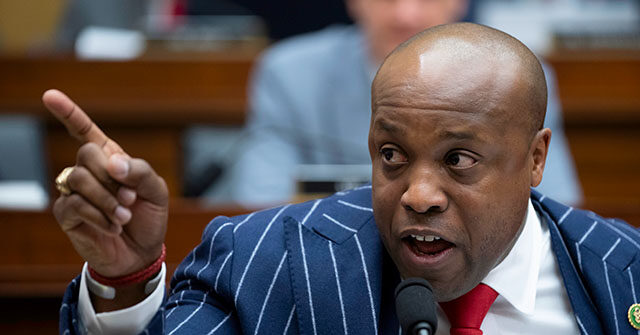Vice President Kamala Harris’s recent visit to Texas has stirred significant discontent among Republican officials in the state as the November Election approaches. Harris’s trip, described by Lt. Gov. Dan Patrick as “one of the dumbest political decisions,” is perceived as an ineffective campaign strategy in a state where support for the Biden administration is weak. Patrick believes that Harris’s presence in Texas signals a lack of prioritization for key battleground states and expressed hope that she extends her stay, suggesting that former President Donald Trump is poised to regain the presidency due to dissatisfaction with the current administration. His statements reflect broader sentiment among Texas Republicans, who see Harris’s actions as detrimental to her party’s prospects in the region.
Representative Wesley Hunt has pointed to Harris’s role as “Border Czar” as a source of negligence that has allegedly contributed to tragic outcomes, including the deaths of American citizens at the hands of undocumented immigrants. He argues that these individuals would still be alive had Harris taken her responsibilities seriously. This criticism highlights the intersection of national security and local governance within Texas, where immigration is a critical and contentious issue. Harris’s visit is not merely about campaigning; it’s embroiled in larger themes involving public safety and border management that resonate with Republican narratives about the failures of the Biden administration.
Amidst the political backdrop, Harris’s rally in Houston is expected to feature notable Texas figures, including singer Beyoncé and 91-year-old Willie Nelson. However, the presence of celebrity endorsements has prompted skepticism from local commentators and GOP officials alike. Some argue that Harris’s association with such high-profile figures does not translate into real support among voters facing pressing concerns like crime and human trafficking. The dichotomy between celebrity culture and the serious issues at play suggests a potential disconnect between the vice president’s campaign approach and the realities faced by Texan constituents.
Poll data appears to reinforce the Republicans’ sentiments, as recent surveys indicate a strong preference for Trump among Texas voters, with a reported 53 percent favoring him over Harris’s 46 percent. This margin underscores a crucial electoral landscape where Democrats must navigate significant headwinds in the state. Critics within the GOP downplay the effectiveness of celebrity-driven events, framing them as insufficient to address the urgent matters under discussion, particularly around border security and crime, which resonate deeply within the Texan electorate.
In addition to these criticisms, Harris’s agenda during her visit reportedly includes advocating for abortion rights. Observers anticipate that she may misleadingly suggest that Trump plans to impose a national abortion ban if reelected, despite Trump’s claims that such governance should be left to the states. This assertion reflects a continuing campaign strategy by Democrats to galvanize support around reproductive rights, particularly in light of the shifting political landscape regarding abortion following the Supreme Court’s decision on Roe v. Wade.
As the election nears, Lt. Gov. Patrick is calling for increased voter mobilization efforts, emphasizing the need to keep Texas a Republican stronghold. He frames the upcoming elections as critical for the future of the nation, positioning Texas as the “last line of defense” against what he refers to as the chaos of the Harris-Biden administration. Through these statements, he seeks to encourage participation among fellow Republicans, urging them to rally friends and family to the polls, which he deems essential for what he terms “the most consequential election of our lifetime.” The urgency in his message captures the high stakes involved as both parties prepare for a highly competitive electoral battle in Texas.

